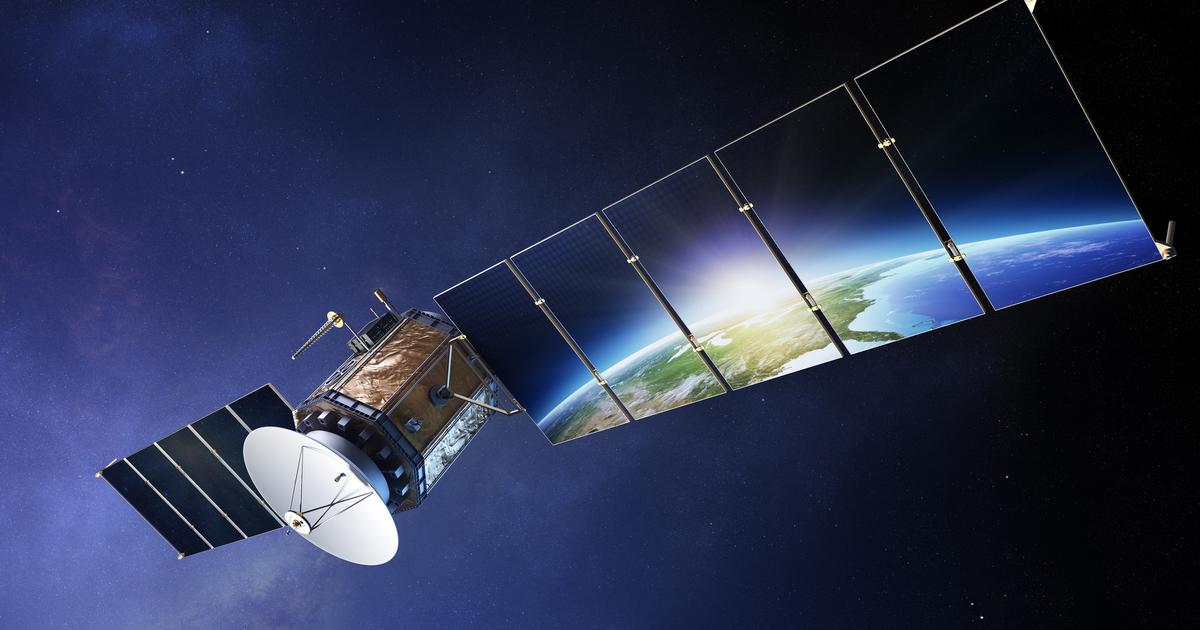Friction between the US and Russia due to potential danger to astronauts 0:38
(CNN) -
Days after world powers concluded a monumental climate summit in Glasgow, another environmental emergency occurred, this time in space.
On Monday, Russia fired a missile at one of its own satellites as a test, generating thousands of debris that sent crew members from the International Space Station (ISS) to cover.
US Says "Will Not Tolerate" Russia's "Reckless and Dangerous" Anti-Satellite Missile Test
The antisatellite test was condemned by the US authorities - and much of the scientific community - as a "reckless and dangerous act" that could pose a threat to space activities for years to come.
The test created more than 1,500 pieces of traceable debris, according to the US Space Command.
The fragments are a danger to the current seven-person crew of the International Space Station - which includes two Russians - and to other satellites that provide crucial communication services on Earth.
Russia publishes video of bombers flying over Belarus amid tensions on the border with Poland 1:23
But the newly created space debris also adds to the more than 9,600 tonnes of debris orbiting our planet, according to the European Space Agency.
advertising
More than six decades after the Soviets launched the first satellite, Sputnik 1, the junk beyond our skies continues to grow.
Experts warn that, like the climate crisis facing Earth, space is also feeling the impact of human activity.
"The accumulation of plastic in Earth's oceans and the accumulation of scrap in orbit around the Earth are very similar," says Hugh Lewis, Professor of Engineering and Physical Sciences at the British University of Southampton.
"The terrestrial environment and the space environment, it is just one environment," he said, adding that although some governments are working on improving the sustainability of space, a lot of diplomatic work is still needed.
Space debris was not on the negotiating table at the COP26 climate summit.
A garbage can in the sky
Invisible in the night sky, there are hundreds of millions of debris objects orbiting our planet.
This debris is made up of parts of old satellites, as well as entire missing satellites and rocket bodies.
The International Space Station.
According to a January NASA report, at least 26,000 of the chunks of space debris orbiting Earth are the size of a baseball or larger, large enough to destroy a satellite;
more than 500,000 pieces of debris are the size of a marble, capable of damaging spacecraft, while "more than 100 million pieces are the size of a grain of salt that could pierce a spacesuit."
When these fragments collide with each other, they can create even more smaller chunks of orbital debris.
"The smaller the fragment, usually the faster it will disintegrate from the environment," Lewis said.
According to the LeoLabs space tracking service, the height of the debris created by the Russian missile test ranges between 440 and 520 kilometers.
Debris at this altitude is a "concern, but in many ways a blessing," Lewis said.
He explained that the debris would turn into a "rain" and "burn" upon re-entering the Earth's atmosphere.
The most powerful space telescope has a date to go to space 0:55
But Russia's recent missile test will also trigger a "significant increase in obstacle avoidance actions" that satellites will have to take, said Tim Flohrer, a space debris expert at the European Space Agency.
Flohrer also noted the importance of services such as telecommunications, weather forecasting and GPS, which depend on satellites.
He said that although people do not feel the immediate impact of space debris in their daily lives, society nonetheless "relies more and more on space as the infrastructure for many services on the ground."
"If the amount of space debris increases more and more, it endangers the future use of space by everyone," he said.
Russia shows its strength in space
The reason Russia is conducting this test now is "the million dollar question," Lewis said.
"In the past, countries have carried out these kinds of tests to demonstrate their technology and capabilities, and also to make a statement that they are capable of doing it," he said.
Only a few - the United States, Russia, India and China - have successfully tested anti-satellite weapons.
NASA illustration of space junk orbiting Earth.
It is not the first time that Russia has carried out this type of test.
But Monday's incident sparked condemnation from the West for endangering the International Space Station (ISS) and its crew.
The crew had to quickly don their spacesuits and jump into their ship in case the station was hit by some passing debris, according to the Russian space agency Roscosmos.
But in a message posted on Twitter, Roscosmos downplayed the danger.
"The orbit of the object, which today forced the crew to move to the spacecraft according to standard procedures, has moved away from the orbit of the ISS," Roscosmos tweeted.
"The station is in the green zone."
The incident comes at a time of rising tensions between the United States and Russia.
US officials have publicly sounded the alarm over Russia's troop buildup near its border with Ukraine and joined European nations in expressing concern over the migrant crisis on the border with Russia's close ally Belarus.
With information from Katie Hunt, Kylie Atwood, Jim Sciutto, Kristin Fisher, and Nicole Gaouette.
Space missiles






/cloudfront-eu-central-1.images.arcpublishing.com/prisa/XY3C6N54G4B3XBPGV7YLE3AUKM.jpg)







